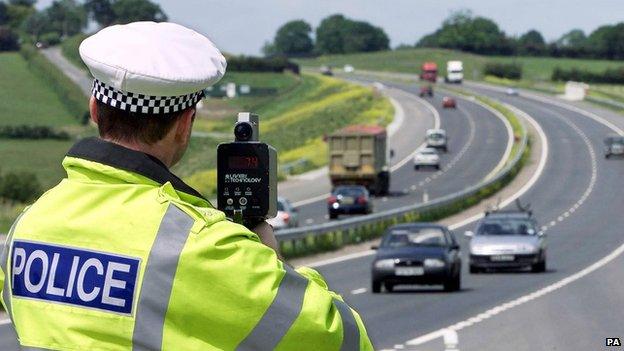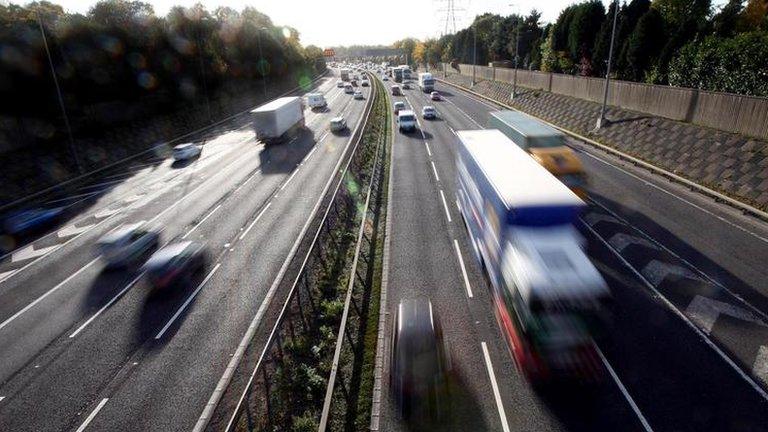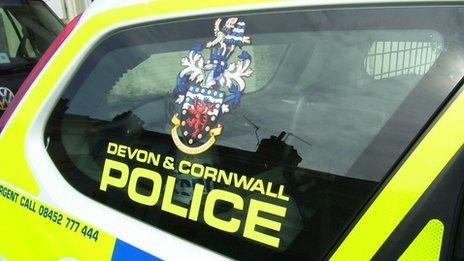Drop in number of traffic police in England and Wales
- Published
- comments

The number of traffic police in England and Wales fell 23% in four years, according to official figures.
The total number dipped from 5,635 at the end of March 2010 to 4,356 by the end of March 2014, according to a government response to a parliamentary question.
Just two forces - Suffolk and Warwickshire - had more traffic police at the end of the period.
The RAC said the figures meant those breaking laws "will not get caught".
The Home Office said crime had fallen by more than a fifth under the coalition government, and officers had the right resources to enforce the law.
'Mockery'
The figures showed the largest drop was in Devon and Cornwall, where the number of traffic police fell from 239 in 2010 to 57 in 2014 - a 76% drop.
In the 12-month periods ending March 2012 and March 2013, Devon and Cornwall had no full-time traffic officers.
In Essex, the number fell 71%, while in Nottinghamshire it dropped 68%. Wiltshire saw a 47% drop.
RAC head of external affairs Pete Williams said: "These figures make a mockery of motoring law. If there are not enough police on the road, we can introduce all the new rules we want, but those breaking them just will not get caught.
"While cameras are good at catching speeders and drivers who go through red lights, offences that relate to general poor behaviour at the wheel still rely on a police officer to enforce them."
Last week, the Institute of Advanced Motorists criticised, external "many years of government cutbacks and the resulting drop in visible policing" after the number of people killed on UK roads rose to 1,711 in the year ending September 2014.
Neil Greig, director of policy and research, said at the time: "It is disappointing that after many years of solid falls in the numbers of people killed and injured on our roads, the government has taken its eye off the ball."
Nick Alston, police and crime commissioner for Essex, said his force had to use officers "where the most harm is".
He said: "The chief constable has applied a real clear understanding of demand. They have done the science, they've done the analysis, when do they need road officers on the road policing, and that's helped hugely to have the right officers in the right place.
"It would be great to have more but we have to use our officers where the most harm is.
"It's awful that nearly 100 young people were killed or seriously injured on our roads and we must continue to police that and we will. But it has to be balanced against the other harms to young people.
"We're often talking about child sexual exploitation or online grooming. We need to use our resources where the most harm is."
A Home Office spokeswoman said crime had fallen by more than a fifth under the coalition.
She said: "Like all parts of the public sector, the police are making their contribution to reducing the deficit but there is no question that they will have the resources to do their important job and enforce the law.
"What matters is how officers are deployed, not how many of them there are in total. The reduction in crime nationwide demonstrates there is no simple link between officer numbers and crime levels, the visibility of the police in the community and the quality of service provided."
- Published4 February 2015

- Published27 January 2012
